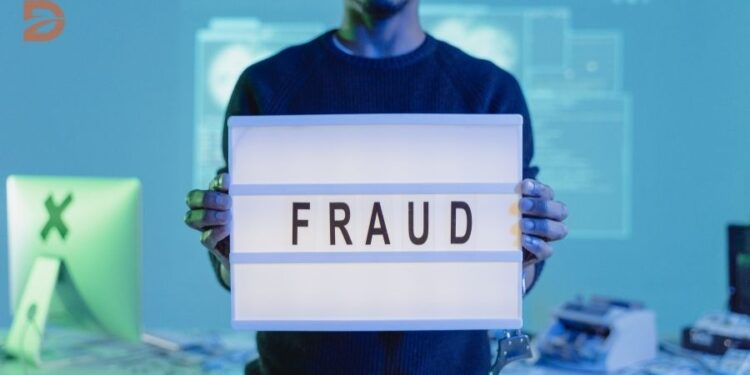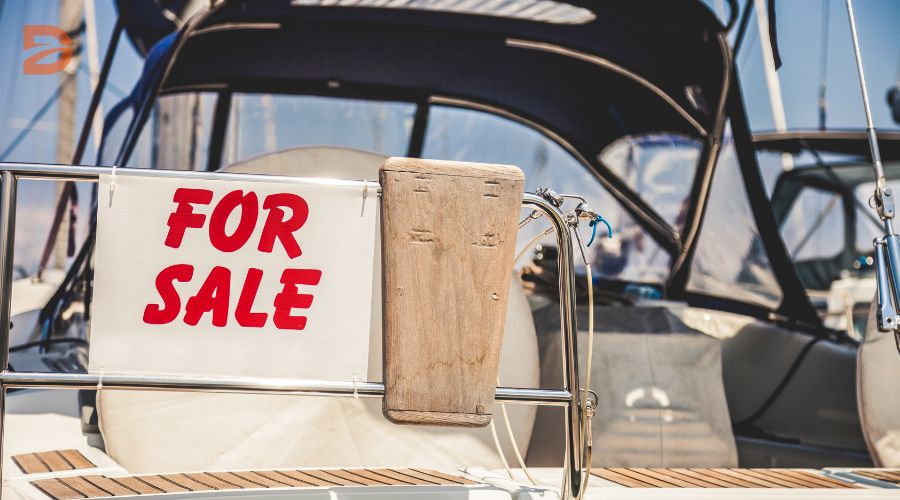Are you in the market for a boat, but worried about falling victim to scams? You’re not alone. Boat sales are rife with fraud, making it a challenge for honest sellers and buyers to complete a transaction without encountering deception. But fear not – this article is here to provide you with essential tips to protect your investment and avoid boat fraud.
Fraudsters use a variety of tactics to trick unsuspecting buyers, from counterfeit cashier’s checks to phony escrow services. So, how can you ensure you don’t get caught in their web of deceit? Keep reading to uncover the essential buyer tips that will help you navigate the murky waters of boat purchasing with confidence.
Key Takeaways
- Beware of scams involving counterfeit cashier’s checks or money orders, PayPal variations, and fraudulent escrow services.
- Red flags to watch for include vague language, lack of interest in inspecting the boat, and poor communication skills.
- Verify the legitimacy of cashier’s checks, money orders, and escrow services before completing any transactions.
- Conduct in-person inspections and use licensed brokers or attorneys to protect your investment.
- Report any suspicious activity to the appropriate authorities to help prevent others from falling victim to boat fraud.
Recognizing Common Boat Fraud Tactics
Boat buyers and sellers must remain vigilant against a range of fraudulent tactics that can lead to devastating financial losses. According to BoatUS, three of the most prevalent boat fraud schemes include counterfeit cashier’s checks or money orders, PayPal variations, and escrow scams.
Counterfeit Cashier’s Check or Money Order
In this tactic, the buyer offers to send a check for more than the asking price and asks the seller to forward the excess money to a shipping company. Unbeknownst to the seller, the check is later revealed to be fraudulent, leaving the seller out of the forwarded funds.
PayPal Variation
Scammers may request the seller’s PayPal information to send an inflated payment, and then ask the seller to forward the overage to a shipper. The initial payment is ultimately found to be invalid, trapping the seller with the forwarded amount.
Escrow Scam
Fraudulent buyers may suggest using a fake escrow service to handle the transaction, only for the seller’s money to disappear once transferred to the bogus entity.
Staying vigilant and recognizing these common boat fraud tactics can help protect both buyers and sellers from falling victim to these scams.
Avoid Boat Fraud: Red Flags to Watch For
When buying or selling a boat, it’s crucial to be aware of the common tactics used by scammers. Recognizing red flags can help you avoid becoming a victim of boat fraud. Some key warning signs to watch for include the use of vague or generic language, a refusal to communicate by phone, poor grammar and language skills, a lack of interest in inspecting the boat, and the use of cobbled-together email addresses.
Vague or Generic Language
Scammers often rely on vague or generic language in their communications, making it difficult to get specific details about the boat or the seller. They may use broad, impersonal descriptions and avoid answering direct questions.
Refusal of Phone Contact
Legitimate boat sellers should be willing to discuss the transaction over the phone. Scammers, on the other hand, often refuse to engage in phone conversations, preferring to communicate solely via email or messaging platforms.
Poor Grammar and Language Skills
Emails or messages riddled with spelling and grammatical errors can be a sign of a fraudulent seller. Scammers may use generic, impersonal language that lacks the attention to detail and professionalism of a genuine boat owner.
Lack of Interest in Inspecting the Boat
A seller who is unwilling to allow a potential buyer to physically inspect the boat should be viewed with caution. Legitimate sellers understand the importance of an in-person inspection and are typically eager to showcase their vessel.
Cobbled-together Email Addresses
Suspicious email addresses, such as those that appear to be hastily created or use generic domains like gmail.com or yahoo.com, can be a red flag. Reputable boat sellers often use professional-looking email addresses associated with their business or personal domain.
By being vigilant and recognizing these common boat fraud red flags, you can protect yourself from falling victim to scams and ensure a safe and successful boat buying or selling experience.
Protecting Yourself from Boat Buying Scams
Buying a boat can be an exciting venture, but it’s crucial to be vigilant against the rise of boat-buying scams. Scammers can prey on hundreds or thousands of people at a time through online methods, increasing the reach and impact of their fraudulent schemes within the boat-buying market. To safeguard yourself from these predatory tactics, there are several essential steps you should take.
Verify Cashier’s Checks and Money Orders
One common tactic used by scammers is the use of counterfeit cashier’s checks or money orders. In a provided case study, a scammer attempted to deceive a boat seller by sending a counterfeit $4,000 cashier’s check drawn on PNC Bank from a company in Texas to purchase a 13-foot sailboat listed on Craigslist for $2,200. To avoid falling victim to this scheme, always verify the validity of any cashier’s checks or money orders received by checking the routing number, bank address, and phone number, and calling the bank directly to confirm the authenticity of the instrument.
Use Legitimate Escrow Services
Scammers may also try to exploit the trust placed in escrow services. It’s crucial to ensure that the escrow service you use is a legitimate, third-party entity, not one suggested by the seller. Beware of any pressure tactics or claims of urgency, as these may be signs of a potential scam.
Conduct In-Person Inspections
Finally, make arrangements to physically inspect the boat before completing the transaction, even if the boat is located out of state. This allows you to thoroughly examine the vessel, identify any potential issues, and ensure that the boat matches the seller’s description. Avoid rushing into a purchase without seeing the boat in person, as this can leave you vulnerable to fraudulent claims or misrepresentation.
By taking these proactive steps to protect yourself from boat-buying scams, you can minimize the risk of falling victim to these predatory practices and ensure a successful and secure boat-purchasing experience.
Seller Beware: Boat Selling Fraud Tactics
When it comes to boat sales, it’s not just buyers who need to be cautious – sellers must also be wary of fraud tactics, such as overpayment and refund scams, as well as fraudulent escrow accounts. These scams can leave sellers without their boat or the agreed-upon payment, putting them in a precarious financial position.
Overpayment and Refund Scams
In an overpayment scam, the buyer will send a cashier’s check for more than the agreed-upon price and ask the seller to wire the difference back. However, the original check later turns out to be counterfeit, leaving the seller without the boat or the money they wired.
Fraudulent Escrow Accounts
Fraudulent escrow accounts are another tactic boat sellers must watch out for. In this scenario, the buyer suggests using a seemingly legitimate but ultimately fake escrow service to handle the transaction. Once the seller has handed over the boat, the scammer disappears with both the boat and the money, leaving the seller in a difficult situation.
To protect yourself as a boat seller, it’s crucial to verify the legitimacy of the buyer and any escrow services. Ensure you only accept legitimate payment methods and never wire funds or overpay for a boat. By staying vigilant and following best practices, you can minimize the risk of becoming a victim of these boat-selling fraud tactics.
| Fraud Tactic | Description | Impact on Sellers |
|---|---|---|
| Overpayment and Refund Scams | The buyer sends a counterfeit cashier’s check for more than the agreed price and asks the seller to wire the difference back. | The seller loses the boat and the money they wired. |
| Fraudulent Escrow Accounts | The buyer suggests using a fake escrow service to handle the transaction. | The seller loses the boat and the money, as the scammer disappears with both. |
Avoid Boat Fraud: Safeguarding Your Transaction
Protecting yourself from boat fraud goes beyond just recognizing common scam tactics. To truly safeguard your boat transaction, it’s crucial to verify the buyer’s identity and location, work with licensed professionals, and report any suspicious activity to the authorities.
Verify Buyer’s Identity and Location
Before finalizing a deal, take the time to thoroughly vet the buyer’s credentials. Verify their contact information, such as phone number and email address, and cross-reference it with their claimed identity. Ensure the buyer is who they say they are to avoid falling victim to identity theft or other fraudulent schemes.
Use Licensed Brokers and Attorneys
Leveraging the expertise and accountability of licensed brokers and attorneys can significantly enhance the security of your boat transaction. These professionals can provide valuable guidance, facilitate the process, and ensure all legal requirements are met, safeguarding both parties involved.
Report Suspicious Activity to Authorities
If at any point during the transaction, you suspect fraudulent activity, do not hesitate to report it to the relevant authorities. By reporting suspicious behavior, you not only protect yourself but also help prevent others from becoming victims of boat fraud. Remain vigilant and take proactive steps to safeguard your boat transactions.
Navigating the boat market with caution and diligence is crucial to avoid falling prey to scams. By verifying buyer identities, leveraging licensed professionals, and reporting suspicious activity, you can significantly enhance the safety and security of your boat transactions.
Maintaining your boat’s appearance and longevity is also essential, just like with your car. Explore the must-have tools for easy car cleaning and maintenance
Conclusion
Boat fraud is a serious issue that can leave both buyers and sellers financially and emotionally devastated. By recognizing common tactics, staying vigilant for red flags, and taking proactive steps to protect themselves, buyers and sellers can navigate the boat purchasing and selling process safely and avoid becoming victims of these scams. Remember, if anything seems unusual or suspicious, it’s best to proceed with extreme caution to safeguard your investment and your boat-buying or selling experience.
The key to preventing boat fraud lies in maintaining vigilance throughout the transaction process. Buyers should be wary of sellers who cannot be reached by phone, claim to be out of state or overseas, or pressure for quick decisions and upfront payments. Sellers, on the other hand, must verify the buyer’s identity and location, use licensed brokers and attorneys, and report any suspicious activity to the authorities.
By staying informed and proactive, both buyers and sellers can protect themselves from the devastating consequences of boat fraud. The Internet Crime Center (IC3) is an invaluable resource for reporting fraudulent activities and staying up-to-date on the latest scams targeting the boating industry. By working together to combat these fraudulent practices, we can ensure a safer and more secure boat buying and selling experience for all.
FAQ
What are the most common boat fraud tactics?
The three most common boat fraud tactics are the use of counterfeit cashier’s checks or money orders, PayPal variations, and escrow scams.
What are the red flags that can indicate a potential boat fraud attempt?
Red flags include the use of vague or generic language, a refusal to communicate by phone, poor grammar and language skills, a lack of interest in inspecting the boat, and the use of cobbled-together email addresses.
How can buyers protect themselves from boat-buying scams?
To protect yourself, it’s essential to verify the validity of any cashier’s checks or money orders received, use a legitimate escrow service, and conduct in-person inspections of the boat.
What tactics should boat sellers be wary of?
Boat sellers must also be wary of fraud tactics, such as overpayment and refund scams, as well as fraudulent escrow accounts.
How can buyers and sellers further safeguard against boat fraud?
To further safeguard against boat fraud, it’s important to verify the buyer’s identity and location, use licensed brokers and attorneys to facilitate the transaction, and report any suspicious activity to the appropriate authorities.










